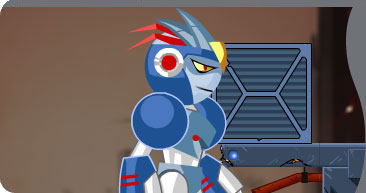Via: Enspire Learning - Changing The Way People Learn
Sun Microsystems is a large company with businesses in various sectors of the technology industry. It employs over 33,900 people worldwide,has offices in dozens of countries, and sells products and services in many more.
In the summer of 2007, Sun commissioned a serious games vendor, Enspire Learning, to create two onboarding games, Dawn of the Shadow Specters and Rise of the Shadow Specters. The games were released in October of 2007 and made publicly available on Sun’s website. New hires at Sun are encouraged to play them as an optional part of their onboarding process.
Sun's New Hire Experience is about accelerate, participate, learn, explore and play.
As with many technology companies, a sizable percentage of Sun’s employees work remotely. Many of these employees hardly see the office at all. While this is a considerable perk of working for Sun, it can leave employees feeling disconnected from their company. New hires are especially likely to be affected by such problems.
Sun recognized a need to strengthen the sense of community within its workforce. One of its efforts to do so entailed revamping its onboarding program, as a strong onboarding program shows employees that their company cares not only about training them, but welcoming them as well.
The games were designed to teach new hires about Sun, but this goal was secondary to making employees feel welcome, at home, and integrated into the Sun Microsystems culture.
The word "game" was the driving force in this endeavor. Sun wanted to give its new hires something to be excited about, to make them feel that Sun is a cool, fun place to work. The point was, and is, to have new hires fall in love with Sun right from their orientation.
Learner Profile
The Shadow Specter games were designed for a dual audience: prospective Sun employees and actual Sun employees.
Prospective Employees
The average age of a Sun employee is forty-two. While the collective work experience this affords is an asset, Sun would like to make better use of today’s large population of young, technologically oriented talent. Much of this talent has grown up playing and loving video games, from Pac-Man to Doom. Many have fond memories of the puzzle and platformer games of the late 1980s and 1990s.
Sun’s company vision is based around the concept of a connected world. In keeping with this thought, the Shadow Specter games were made publically accessible on Sun’s website. One hope was that this would reflect and advertise the fact that Sun, a proponent and creator of open source software, advocates sharing knowledge rather than hoarding it.
The assumption is that this would appeal to the ideals of many younger (and older) prospective employees. Sun hopes to impress its merits as an employer and belief in its vision upon current, emerging, and future members of the workforce. The intention is to make the recruiting benefits of the games last for years to come.
Current Employees
While the Shadow Specter games were designed with prospective employees in mind, their content must inform current and new employees about Sun, who are often middle aged or older. Such employees may or may not enjoy the kind of action-based play associated with video games.
It was the belief of game developers that, while generational gaps are a concern with video games, this problem would not necessarily extend to other kinds of games. The thinking was that employees of any generation would appreciate a fun and entertaining welcome, provided that this welcome actually is entertaining and fun. The Shadow Specter games, would, hopefully, increase employee enthusiasm for Sun’s community, which would in turn increase the sense of community within the company itself.
The backstory as well as further considerations on making or commissioning Serious Games are all included in Enspire Learning's release of a new whitepaper featuring the Shadow Specter Games, “Serious Gains from Serious Games: Solving Business Problems with Custom Games”.
This is a useful read for anyone interested in learning how to design a serious game to accomplish a variety of business objectives from creating an effective training program to increasing employee morale to marketing a product.
